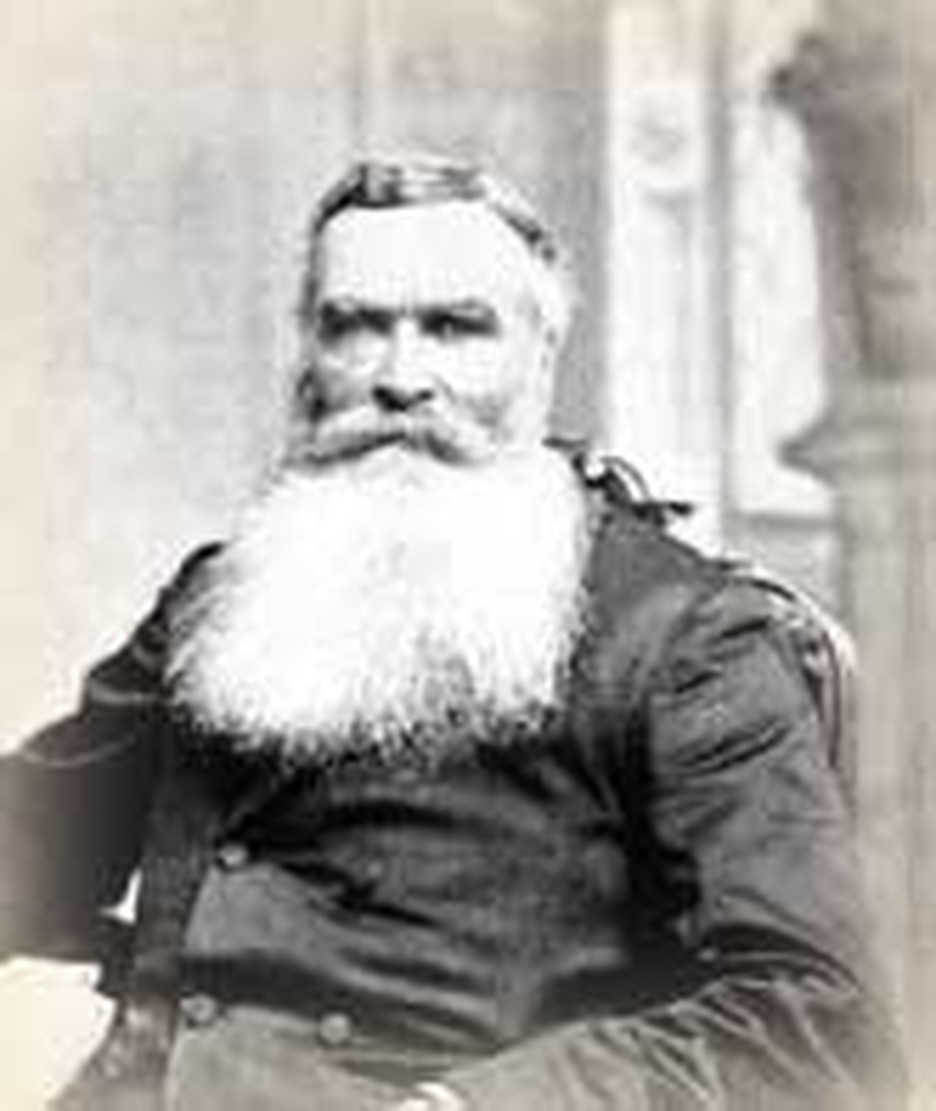
William Taylor was born in Virginia on this day, May 2, 1821. He would make his mark as a Methodist circuit rider and missionary. The mark he made as a child, however, was probably not much different than that of other boys of his day.
There was the time, for instance, when three-year-old William saw a large cluster of bees hanging down from the front of his grandfather's hive. "I said, 'Ah, my sweeties, I'll fix you.' So I got an empty horn of a cow and filled it with water and dashed it on the bees. They resented it and speared me most unmercifully. The lesson I learned was to attend to my own business and not meddle with the affairs of other folks."
Before William was ten, his Grandmother taught him the Lord's prayer and explained that he could be a son of God. He longed for this relationship but did not know how to get it. Overhearing the story of a poor black man who had gotten salvation, he wondered why he could not himself. "But soon after, as I sat one night by the kitchen fire, the Spirit of the Lord came on me and I found myself suddenly weeping aloud and confessing my sins to God in detail, as I could recall them, and begged him for Jesus's sake to forgive them, with all I could not remember; and I found myself trusting in Jesus that it would all be so, and in a few minutes my heart was filled with peace and love, not the shadow of a doubt remaining."
After his conversion, William backslid. Satan (as he later perceived) told him he was beyond forgiveness. For years he lived in dread and misery. But when, as a teen, he was restored to Christ, he was so joyful he had to tell others. It was the beginning of a long life of evangelization. "Satan took advantage of my very sensitive and over-scrupulous conscience and gave me a great deal of trouble, but the Lord was very patient with me and often defeated him." His greatest torment was to go up to perfect strangers and speak to them cold turkey about their souls, but he did it until he learned better methods. One was to join the people at their work--log-rolling, maybe--win their confidence with his muscles and then invite the workers to hear him preach.
William rode circuits in Virginia and Maryland. In 1849 he accepted an appointment to California, with Annie Kimberlie, his wife, and their two children. For a fortnight they lived in the open air before taken in. William cut trees and built a home. He ministered to California's gamblers, gold-diggers and sick. Annie was four and a half years younger than her husband, but looked younger still. People mistook them for father and daughter. Although deeply in love, they were often separated for years while he led revival meetings and mission work around the world. He reasoned with himself that if whalers could leave their families for three years to gather blubber, should he be willing to do less for the greater treasure of souls?
William Taylor's labors took him to every continent; he preached in Canada, Australia, Africa, India, Britain and South America. Wherever he went, hundreds turned to Christ. He was made bishop of Africa. With wry humor, he remarked that if he disposed to lay a scheme for killing bishops decently, he would advise that by all means they avoid the highlands of Liberia and remain on the deadly malaria-infested coast. William Taylor urged that missions be self-supporting. By his hard work, he showed how they might. Taylor University in Upland, Indiana, is named for him.
Bibliography:
- Moreau, A. Scott. "Taylor, William." Evangelical Dictionary of World Missions. (Grand Rapids, Mich. : Baker Books, 2000).
- Taylor, William. William Taylor of California, Bishop of Africa : an autobiography; revised with a preface by the Rev. C.G. Moore. (London: Hodder and Stoughton, 1897).
- "Taylor, William." Anderson, Gerald H. Biographical Dictionary of Christian Missions. (New York : Macmillan Reference USA; London : Simon & Schuster and Prentice Hall International, 1998).
Last updated April, 2007.
.jpg)


.jpg)